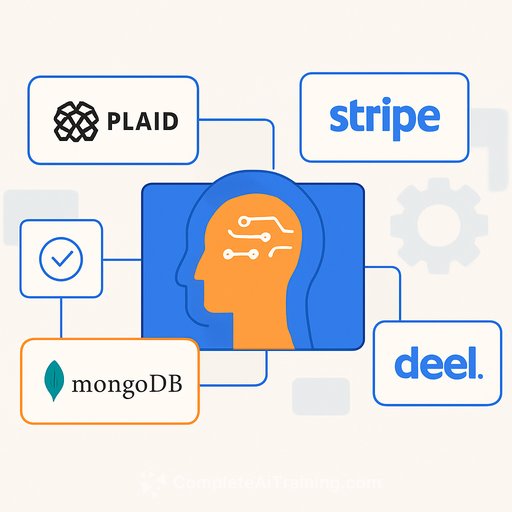Trust-First SEO for AI: What Marketers Need to Know
Search engines now favor verifiable and structured data over vague or fluff content. This shift makes schema markup and clear sourcing essential to SEO success. Meanwhile, local SEO can no longer be judged by broad city-wide metrics. Instead, analyzing rankings block by block uncovers visibility gaps that traditional tools miss.
SEO fundamentals remain the most effective strategy. Consistent basics outperform chasing short-lived AI hacks. With 68% of online experiences starting at a search engine and organic search driving over 1,000% more traffic than organic social, discoverability is the baseline for growth. But ranking alone isn’t enough. A solid technical foundation, authoritative content, and genuine trust signals are crucial, especially as AI increasingly synthesizes answers from these signals.
Insights from David Hunter, Founder of Local Falcon
David Hunter created Local Falcon, a local rank tracking platform that visualizes search visibility across neighborhoods rather than just a single rank. This geo-visual data provides a detailed map of local SEO performance, helping marketers identify where visibility is strong and where it needs work.
1. Treat Your Google Business Profile Like a Live Campaign
Many brands treat their Google Business Profile (GBP) as a static listing. But AI-driven search pulls actively from this data to evaluate relevance and trust. David advises treating your GBP with care by:
- Listing every relevant service category
- Uploading photos regularly to support multi-modal search
- Posting updates and answering your own Q&As to maintain visibility
AI favors current, verified data. A well-maintained GBP feeds directly into AI’s trust calculations.
2. Build Expertise to Earn Conversions and Citations
For a cybersecurity client in competitive metro areas, keyword stuffing and generic location pages hurt SEO. The solution was a complete content overhaul featuring original FAQs, geo-specific details, and genuine testimonials. The results were striking:
- 35% lead conversion rate
- 60% increase in daily site traffic
- Mentions in AI Overviews for key terms like “managed healthcare IT services”
The takeaway: authoritative, technically sound, helpful content wins in both traditional and AI-driven search environments.
3. Link Trust to Visibility
Ranking without proof is ineffective. AI search prioritizes trust, just like traditional SEO. Tools like Local Falcon help reveal exactly where a business lacks local visibility. But visibility alone isn’t enough—credibility matters. Genuine reviews, community-focused content, and complete business profiles send strong trust signals. Avoid spammy tactics like fake map pin manipulation. AI will only cite sources it trusts.
4. Create Content for the ‘Messy Middle’ of the Buyer Journey
AI handles basic questions easily. The real opportunity lies in mid-funnel queries where buyers evaluate options. Instead of shallow blogs, focus on:
- Building internal link structures that map real buyer journeys
- Grouping related topics into clusters anticipating follow-up questions
- Providing deep, original insights that AI cannot simply generate
Each piece becomes a definitive source, not just a post.
5. Use Geo-Visual Data to Understand Local SEO
Traditional rank trackers give a single position, often from remote servers, missing local nuances. Many brands still rely on outdated list-based trackers. Geo-grid data reveals where your business appears or disappears across neighborhoods. This insight helps prioritize locations and validates SEO efforts with clear evidence.
6. Leverage AI to Guide Strategy, Not to Generate Mediocre Content
The biggest mistake in 2025 will be using generative AI to produce low-quality content. This dilutes your SEO efforts and reduces trust. Instead, use AI as an analytical tool to interpret geo-ranking data, uncover opportunities, and improve execution. AI should enhance your strategy, not replace genuine expertise.
Why SEO Fundamentals Still Matter in 2025’s AI Landscape
SEO tactics evolve, but core principles remain key. These include:
- Clear technical foundations
- Useful, original content
- Verified trust and expertise signals
Today, you’re optimizing for AI that needs to sound like a human expert. Brands that treat every piece of content and data as a trust signal will be chosen and cited.
AI Search FAQs for Marketers
Why is SEO still critical in the age of AI-driven search?Because AI models synthesize answers from trusted sources, SEO ensures your brand’s content is discoverable, cited, and trusted.
How do AI tools change the way businesses should approach SEO?AI tools shift focus towards content quality, trust signals, and up-to-date business data. Successful SEO now blends traditional fundamentals with AI-driven insights like geo-visual rankings and search behavior patterns.
What is geo-visual data and why does it matter?Geo-visual data maps your business’s visibility across specific neighborhoods, not just a single rank. It’s essential for prioritizing optimizations in key areas and proving local relevance.
How can my brand get cited by AI systems like Google’s AI Overviews?Publish authoritative, original, and verifiable content. Complete business profiles, customer reviews, and topic expertise are trust signals that large language models use to validate and quote your brand.
Is AI-generated content helping or hurting SEO performance?Poorly used generative AI dilutes content quality and trust. Used strategically for analysis, structuring, and gap identification, AI becomes a powerful tool for optimization—not a shortcut for content creation.
For marketers seeking actionable AI and SEO skills, exploring targeted training courses can provide an edge. Check out Complete AI Training’s marketing courses for practical learning paths.
Your membership also unlocks:






